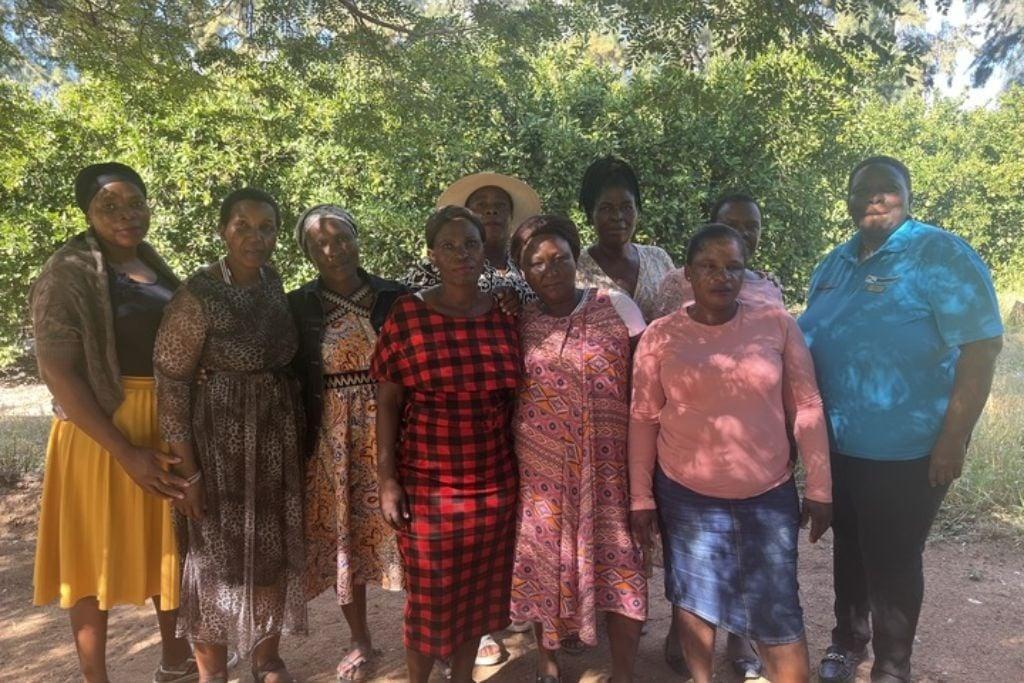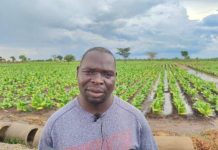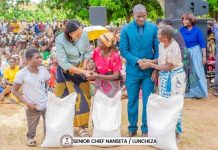Africa-Press – Malawi. In the picturesque Hoedspruit, a small town with dusty roads situated in the Mopani district of Limpopo at the foot of Klein Drakensberg, a small award-winning clinic is nestled. Hoedspruit, home to the world’s largest Spekboom maze, is also home to the Hlokomela clinic. It has become a symbol of hope for many, providing healthcare and treatment closer to the thousands of farmworkers who toil in the fields of this wildlife region.
It all began in the early 1990s when Christine Du Preez, a nursing sister and the wife of a local mango farmer, started noticing a disturbing pattern.
Seasonal mango and citrus pickers in the Hoedspruit area were succumbing to HIV/AIDS at an alarming rate, leaving behind heartbroken communities.
She immediately acted, attempting to treat as many farmworkers as possible. To her utter dismay, most of these workers did not recover, eventually succumbing to the virus, leaving orphans behind. The despair she witnessed fuelled her mission, and she resolved to take action by launching an HIV/AIDS awareness programme called Hlokomela that would not only spread knowledge but also make treatment accessible to those who needed it the most.
The Hlokomela clinic was established in 2005. Named after the Sepedi word for “to care,” it has grown to become a lifeline for many.
By 2017, with the help of the Discovery Fund and The Breast Health Foundation, the clinic expanded to include the Hlokomela Women’s Clinic, which gives rural women access to mammograms, pap smears, counselling and more. Hlokomela also runs a sex-worker programme and a victim-empowerment programme. Today, in 2025, Du Preez proudly notes the clinic’s significant progress: 90% of farm workers living with HIV now know their status and another 90% of people receiving antiretroviral therapy have achieved viral suppression.
The clinic has also helped 15 women through their breast cancer journey.
Taking us through the story, Antoinette Ngwenya, who has worked alongside Du Preez since the clinic’s inception, shares, “People did not know HIV and AIDS, what is this all about, what causes HIV, they did not have information.
Central to Hlokomela’s success is the work of the “nompilos,” a term meaning “mothers of life” in isiZulu.
These remarkable healthcare workers, cherished as the very heartbeat of the programme, were first envisioned by Du Preez, inspired by her experience at a clinic in KwaZulu-Natal. Chosen by their fellow farmworkers based on trust and reliability, nompilos are much more than caregivers-they are changemakers, peer educators, and the bridge between the clinic and the fields, says Ngwenya, who also shared:
“They’ve been chosen by the farmers and the farm workers themselves to be their health representatives, so they come here, we give them information on HIV and AIDS and other wellness and health information.”
Du Preez adds, “Oh no, they’re the most important part of the programme for me because they like the ears, the hands, and everything from the farms. I mean, they will tell us, you know, there’s, for example, there was a TB outbreak or one of the nompilos realised that on a certain farm, someone was battling cancer. Hence, they’re really the people on the ground, and you know, even if there’re any accidents, they will call me and say, listen, ‘please get an ambulance’.”
But this isn’t an easy job, shares one of the nompilos, a resilient 39-year-old, Julia Berosa, who noted that farm workers often refuse assistance.
“Sometimes, when you call the farm workers to teach them about their health, medication, [and so on], others refuse. They don’t want to listen. Some tell me, ‘You are wasting our time with this’. Sometimes, they get stubborn.”
Undeterred, Julia remains stern, drawing strength from the knowledge that her efforts save lives. The mom of three tells News24 that being a nompilo has given her a sense of purpose.
“We are saving a lot of lives because they were not aware of the medication; they thought when you are HIV positive, it’s the end of your life.”
Antonio Mateta, a veteran nompilo aged 50, recounts the heartbreak of seeing workers deny their illness or opt for traditional healers over medical care. “Sometimes, you speak to the person, even if in the eyes you see that this person is sick, they deny it. He will tell you, ‘I’m not sick’.”
The work of the nompilos often goes beyond health education, touching on pressing issues like domestic violence and mental health. Many of them receive trauma counselling to manage the emotional toll of their responsibilities, alongside regular training to enhance their skills. This continuous support ensures that these “farm angels” are equipped to face the daunting challenges that arise daily.
For some, like 55-year-old Sibongile of Jonkmanspruit Farm, becoming a nompilo has been a transformative journey.
“Becoming a nompilo changed me a lot in my life because, at first, I was a shy person. I couldn’t speak to other people, but when I came here, they trained me, so now I’m not shy.”
“When we are not there, they [the farm workers] didn’t want to go to the clinic, but because they put us on the farms, we’re able to talk with those people and tell them about life, illnesses, even it is not HIV, there is a lot of diseases on farms, STI and other diseases, but they hide there, and if I was not there, I think a lot of people would lose their lives.”
Concluding, Du Preez shares, “The nompilos really are our biggest asset.”
For More News And Analysis About Malawi Follow Africa-Press






